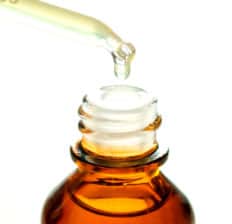This Dr. Axe content is medically reviewed or fact checked to ensure factually accurate information.
With strict editorial sourcing guidelines, we only link to academic research institutions, reputable media sites and, when research is available, medically peer-reviewed studies. Note that the numbers in parentheses (1, 2, etc.) are clickable links to these studies.
The information in our articles is NOT intended to replace a one-on-one relationship with a qualified health care professional and is not intended as medical advice.
This article is based on scientific evidence, written by experts and fact checked by our trained editorial staff. Note that the numbers in parentheses (1, 2, etc.) are clickable links to medically peer-reviewed studies.
Our team includes licensed nutritionists and dietitians, certified health education specialists, as well as certified strength and conditioning specialists, personal trainers and corrective exercise specialists. Our team aims to be not only thorough with its research, but also objective and unbiased.
The information in our articles is NOT intended to replace a one-on-one relationship with a qualified health care professional and is not intended as medical advice.
DIY Vitamin C Serum for the Face
January 9, 2025

Skin care is so important, so it’s unsurprising that there’s such a plethora of products out there to choose from. As a result, it’s pretty confusing, too, with all of the choices on the market. If you haven’t tried a vitamin C serum, such as this DIY vitamin C serum for your face, you may be missing out on some big skin benefits.
While we know that eating vitamin C-rich foods like citrus fruits, berries and dark leafy greens (such as kale) can definitely benefit the inside of the body, making vitamin C part of your daily skin regimen can benefit health from outside-in as well!
Vitamin C helps repair and grow skin tissue. It also contains amazing and powerful antioxidants that can protect the skin from damaging free radicals.
That’s not all this DIY vitamin C serum does for the face and skin either.
How vitamin C works for skin
Vitamin C is one of nature’s amazing and naturally occurring antioxidants. While plants can synthesize vitamin C into a useful form, our bodies cannot because we are missing the enzyme L-glucono-gamma lactone oxidase that is required for the synthesis of vitamin C.
That is why we have to obtain our vitamin C from citrus fruits, strawberries, raspberries, papaya and vegetables, like leafy greens and broccoli. That’s why sailors historically carried vitamin C-rich foods during their travels — to help them avoid scurvy and other diseases.
Eating forms of vitamin C is definitely crucial in good health, but absorption of it is limited.
Therefore, applying a DIY vitamin C serum topically can be of great benefit to the skin and can become a part of your natural skin care routine.
Vitamin C serum benefits
1. Prevents changes due to photoaging
Because vitamin C is a potent antioxidant, it’s a great option to treat and prevent effects of photoaging.
A study of 19 patients between the ages of 36 and 72 years old who had Fitzpatrick skin types I, II and III and mild to moderately photodamaged facial skin were assessed.
The study showed significant improvements by about 68 percent to 74 percent in their skin after three months of use of ascorbic acid application. The review showed significant improvement in fine wrinkles, texture and skin tone of photodamaged skin.
2. Reduces hyperpigmentation
Though hyperpigmentation is relatively harmless, it can cause unsightly dark spots on the skin, especially the face and hands.
Basically, patches of skin appear darker in color. This happens when there is an excess of melanin that creates deposits in the skin.
You may have heard of age or “liver” spots. These are the visible signs of hyperpigmentation and typically caused by damaging sun exposure.
Vitamin C is an antioxidant that helps brighten the skin through what is called tyrosinase inhibitors. These little inhibitors help prevent the development of excessive amounts of melanin.
3. Provides essential collagen support
Vitamin C helps develop healthy collagen by teaming up with certain enzymes that are responsible for the effectiveness of collagen molecules. As such, it helps provide support for connective tissue plus the healing of wounds and blemishes on the skin.
Additionally, vitamin C plays a role in collagen synthesis by enhancing the collagen “gene expression” and overall regulation of collagen synthesis. This is great news since the benefits of collagen for skin are plentiful, including for the face.
Scurvy, as mentioned above, is due to impaired collagen synthesis — or the result of too little vitamin C. While scurvy is not heard of as much today, it brings awareness to the power of a DIY vitamin C serum for the skin and the importance of collagen support.
How to make the best vitamin C serum
Using a small bowl and a whisk, combine the vitamin C powder and filtered water. Blend well.
As mentioned, vitamin C can help brighten the skin and provide a more youthful-looking appearance. It can fade age spots and improve elasticity.
Now, add the aloe, and blend again.
Aloe vera has long been known for its amazing skin benefits. In fact, the ancient Egyptians called it the “plant of immortality.”
Today, it’s still used to treat various skin conditions, wounds and burns, and even eczema and psoriasis.
Once you’ve added the aloe, add the vitamin E oil and the frankincense oil until everything is completely mixed together.
Like vitamin C, vitamin E is an amazing antioxidant. When combined with vitamin C and the rest of these ingredients, it becomes even more powerful.
Research has shown that vitamin E helps neutralize free radicals. These free radicals can cause damage to cells and may even add to the risk of cardiovascular disease and cancer.
The anti-inflammatory benefits vitamin E possesses can inhibit platelet aggregation and provide a boost to the immune system.
Frankincense tops off this DIY vitamin C serum for the face due to its ageless properties. It can help reduce acne, eliminate and even prevent wrinkles, and help tighten skin, especially in those saggy spots like just above the jaw line and under the eyes.
Now that all ingredients have been blended, use a funnel to transfer the serum into a dark bottle. It is best to keep it away from bright light and the sun. Using a dark amber bottle can help, and you can keep it in the fridge for up to two weeks.
The best way to use this DIY vitamin C serum for the face is just before bed. Wash your face with this homemade face wash, and then use this DIY rosewater toner.
Allow the face to dry. Then make sure to gently shake the serum bottle just before use, and apply a small amount of this DIY vitamin C serum. Again, allow it to dry, and top it off with this DIY lavender and coconut oil moisturizer.
Note: The vitamin C serum should only be used at night to avoid exposure to the sun. Make sure to cleanse the skin the next morning before applying sunscreen and makeup.
Print
DIY Vitamin C Serum for the Face
- Total Time: 10 min
- Yield: 30 uses 1x
Description
If you haven’t tried a DIY vitamin C serum for the face, you may be missing out some big skin benefits. Learn how to make it yourself.
Ingredients
- 1 teaspoon GMO-free vitamin C powder
- 1 teaspoon filtered or purified water
- 1½ tablespoons aloe vera gel
- ⅛ teaspoon vitamin E oil
- 5 drops frankincense essential oil
Instructions
- Using a bowl and a whisk, blend vitamin C powder and filtered water.
- Add the aloe vera gel. Blend again.
- Add the vitamin E oil and frankincense. Mix all ingredients until well blended.
- Using a funnel, transfer the serum into a small amber bottle to help reduce light exposure.
- Apply at night, making sure to remove in the morning since it can cause sensitivity when exposed to the sun.
- Finally, add some facial moisturizer, such as our DIY lavender and coconut oil moisturizer.
- You may want to start with every other night to make sure your skin responds well. Results are usually noticeable within a few weeks and up to 3 months.
Notes
- The vitamin C serum should only be used at night to avoid exposure to the sun. Make sure to cleanse the skin the next morning before applying sunscreen and makeup.
- The mixture should remain shelf-stable for up to 2 months.
- Method: Mixing




